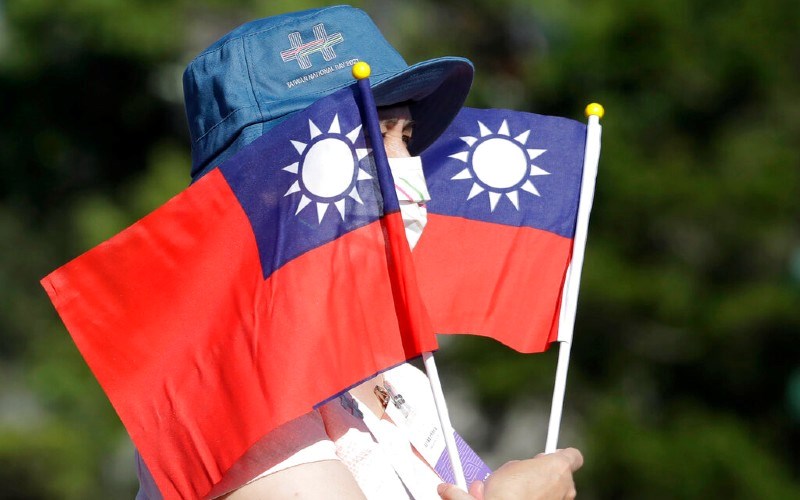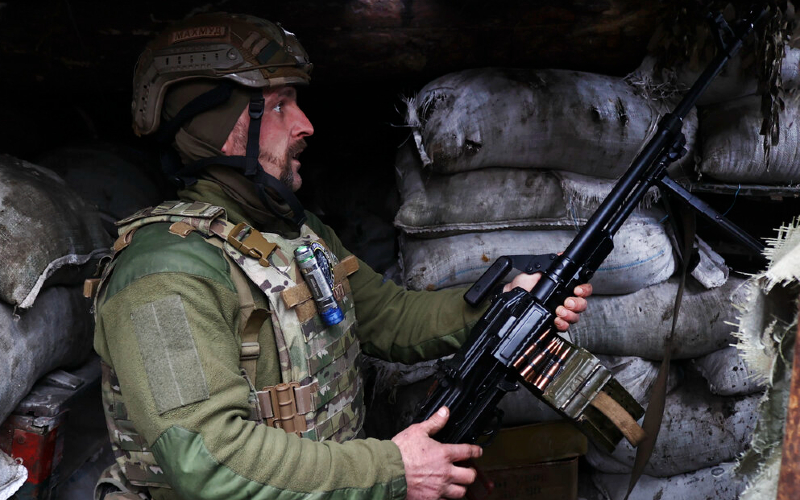"Taiwan is a big focus, brewing as the next big fight," global security expert Benjamin Varlese tells American Family News. "America has lost its taste for large-scale, long-term deployments."
Varlese argues it is imperative to come up with alternatives to the use of large-scale forces for lengthy periods of time. At any time, he determines, the U.S. military and China could find themselves in a conflict, especially as the Chinese regime continues to put an economic and military stranglehold on Taiwan.
Citizen deterrent
One means to lessen the chances of a long-term conflict in East Asia would involve the training of citizen militias in Taiwan, Varlese suggests. He refers to Operation Washtub, which was implemented in Alaska between 1951 and 1959 at the height of the Cold War to defend against an invasion of the Soviet Union. Essentially, Alaskan citizens were armed and trained to defend their homeland and deter an invasion. Valese suggests Taiwanese citizens could be used in the same manner to thwart an invasion from China.

"When the people of Taiwan are responsible for helping protect their homeland," he says, "this could easily turn a speedy military invasion into a much lengthier insurgency."
Considering this, Varlese questions whether the Chinese regime would want to invest the time, energy, and effort to overrun Taiwan when highly motivated, common citizens have joined the fight.
"The goal [of a Washtub-type operation would be] to cause the Chinese military to take a tactical pause due to the added deterrent, forcing them to rethink their strategies," he explains.
Nuclear deterrent
The former U.S. Army Mountain Infantry platoon sergeant says the U.S. also needs to ramp up the development of "tactical-level nuclear options." Currently, he contends, the nuclear armaments of the United States are "excessive to whatever point the U.S. would want to make."
But should China deploy a small nuclear bomb, he says, "the United States does not have an option to respond in kind – but would instead entirely wipe out of China." It is in the best interest of the United States, he argues, to "preserve civilian infrastructure or at least avoid completely destroying civilian infrastructure to the point where the Chinese could not bounce back."
Important allies
Varlese says it is also important to maintain allies in the region, especially as the U.S. would undoubtedly come to the defense of Taiwan against China. "Financially incentivizing other countries to step away from China could help," he determines.
"Can the United States honestly say whether or not pan-Pacific allies like Australia and New Zealand would really come to our assistance in the event of military escalation with China?" he asks. He argues they may not, because of how dependent those two countries are on trade with China.
"China would do all it can to inhibit the United States from having a footprint in the region that provides the strategic edge for the U.S. military to launch operations in the area," Varlese notes.
Therefore, he argues, it is imperative that the U.S. let countries in the region know that if China threatens to cut off trade with them for supporting America, the United States and other allies will be ready to "fill the gap" in trade.
No place for 'progressive' agenda
Considering the potential magnitude of a conflict with China, especially one compounded by the potential use of nuclear weapons, Varlese points out it's going to be hard to avoid civilian casualties. He admits that he is somewhat concerned about the resolve of today's American military to "get the job done" as it relates to the death and violence that would follow such military escalation.
"Unfortunately, China doesn't have that same pause – even when it comes to their own people," he adds.
In light of an apparent "progressive military agenda," Varlese says, "it's time to start ditching this wokeness stuff." While he admits it may be "a great recruiting tool for this new generation," it still concerns him.
"To what extent is this new generation really going to commit to the level of violence that will be required to overcome a dedicated enemy?" he wonders. "Some of America's own strategic deterrence to its enemies needs to be in how the country approaches the U.S. military's image."
Regarding the readiness of a "woke" military, the combat veteran asks: "Are we going to be strong fighting force – or are we going to cater to the select few percent of the population and a softer generation?"







